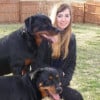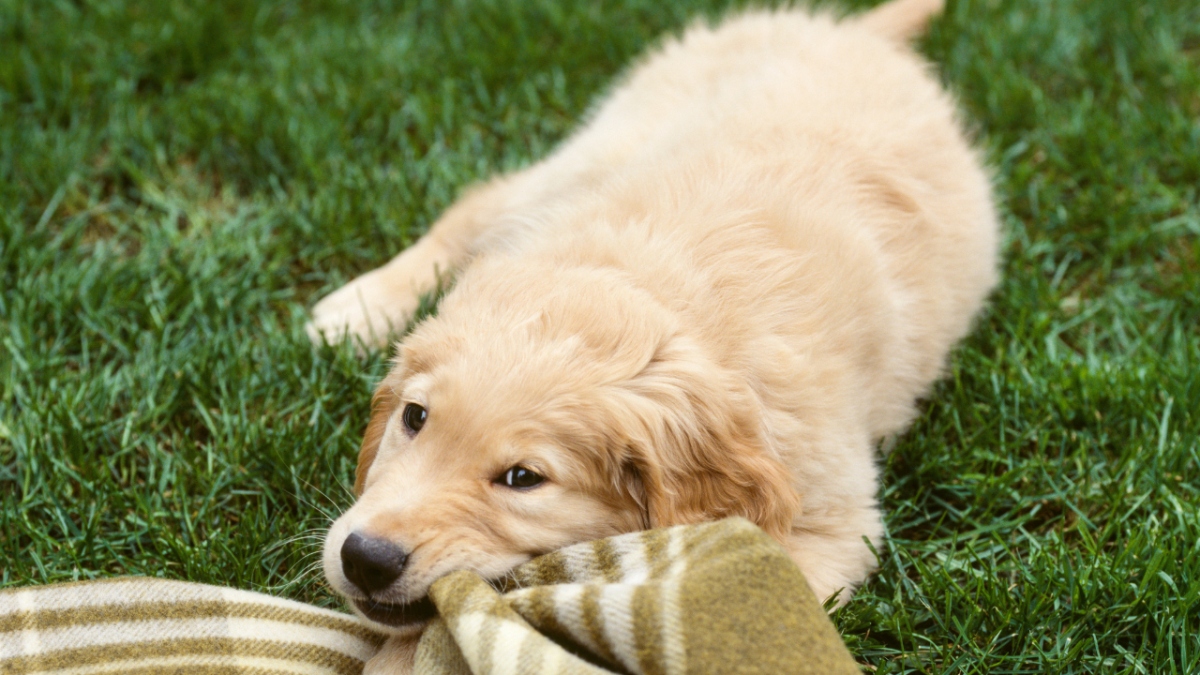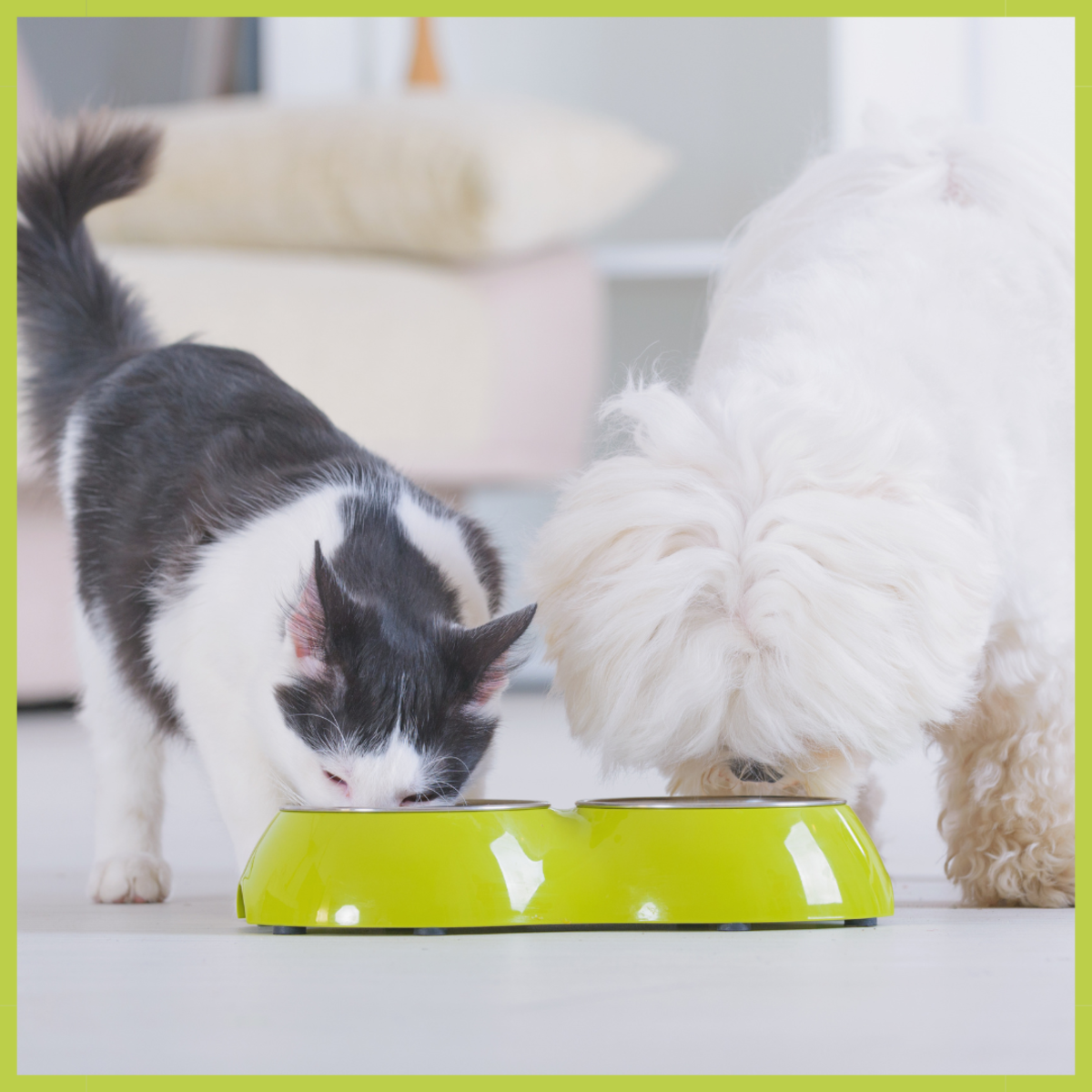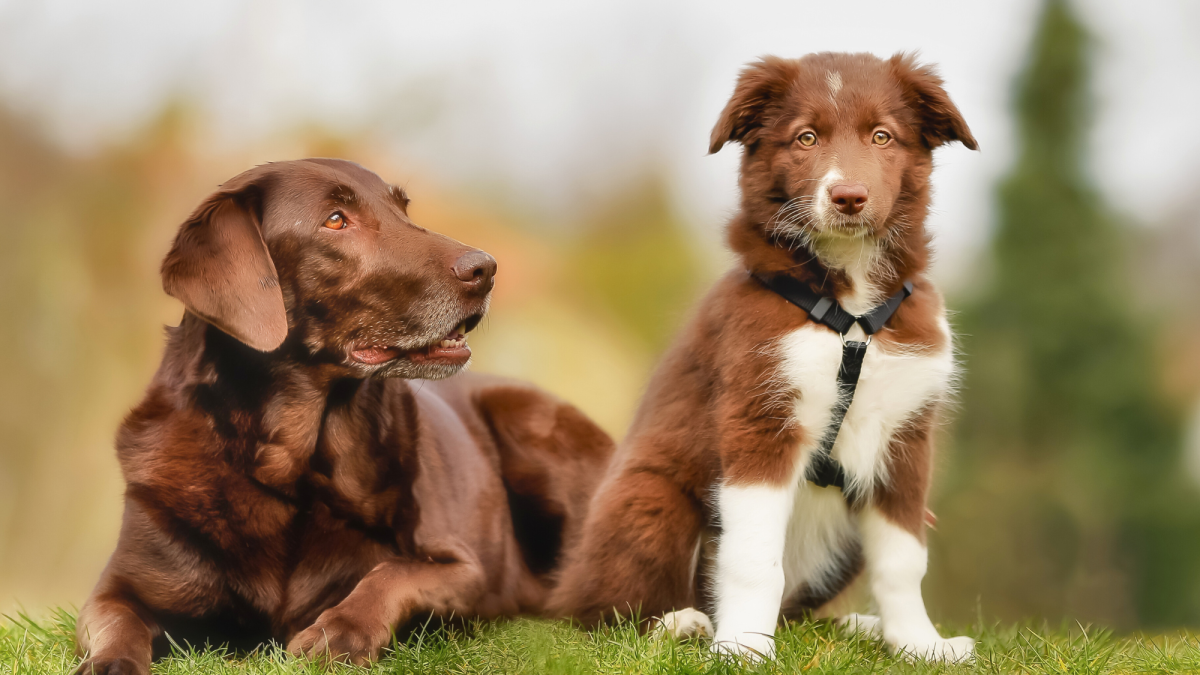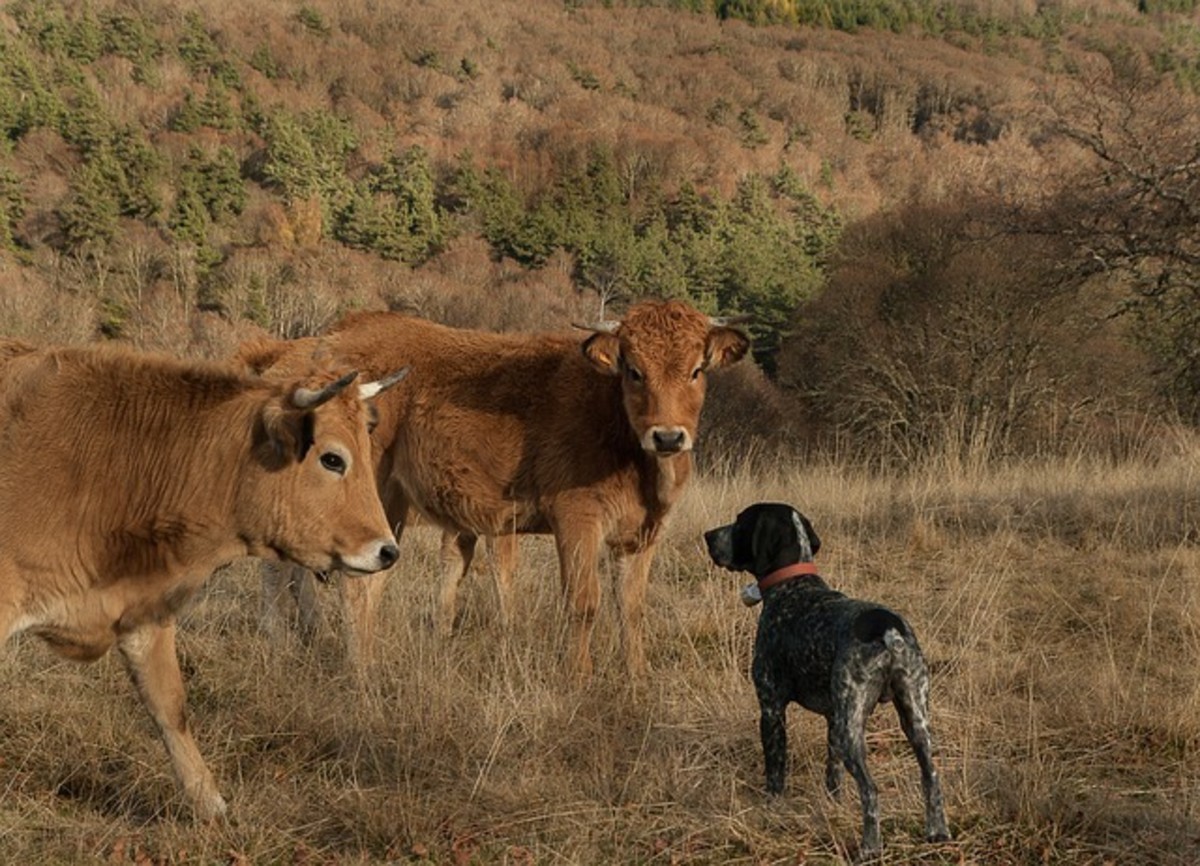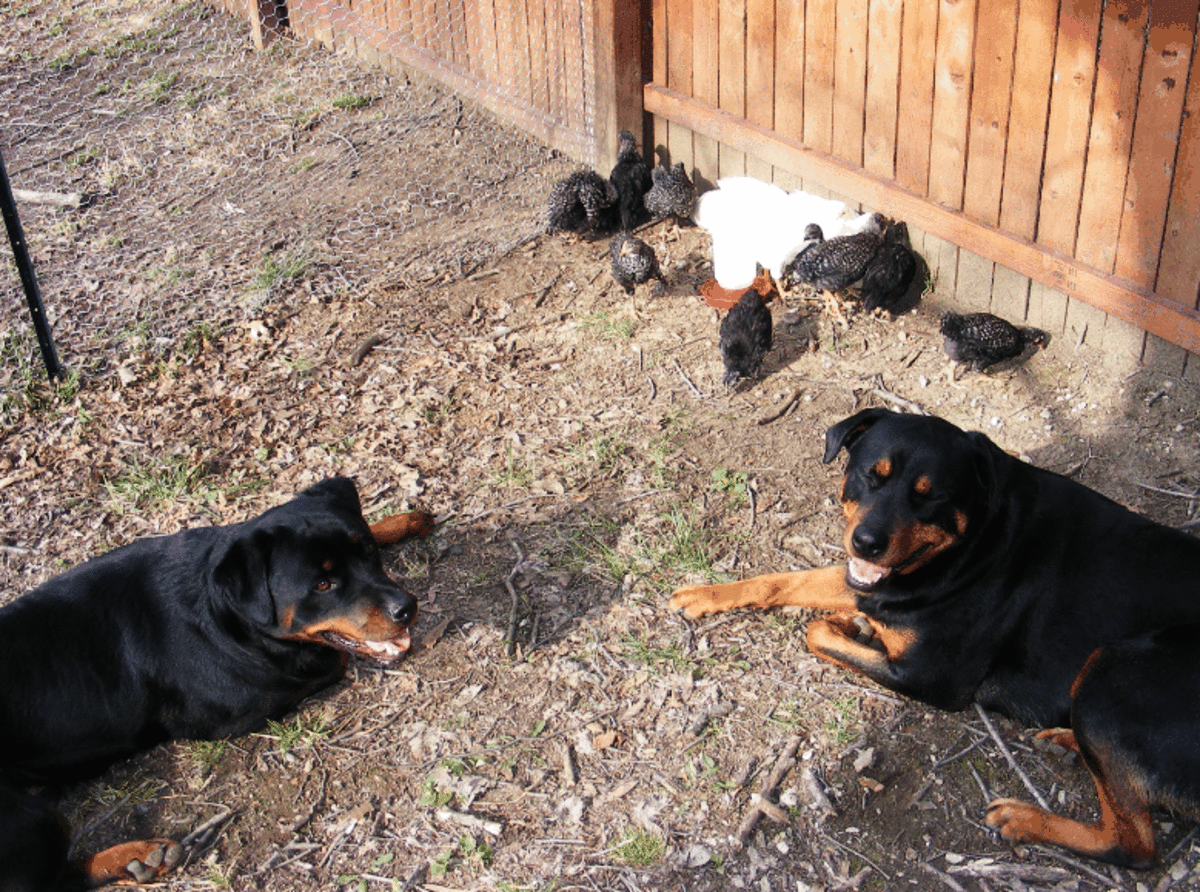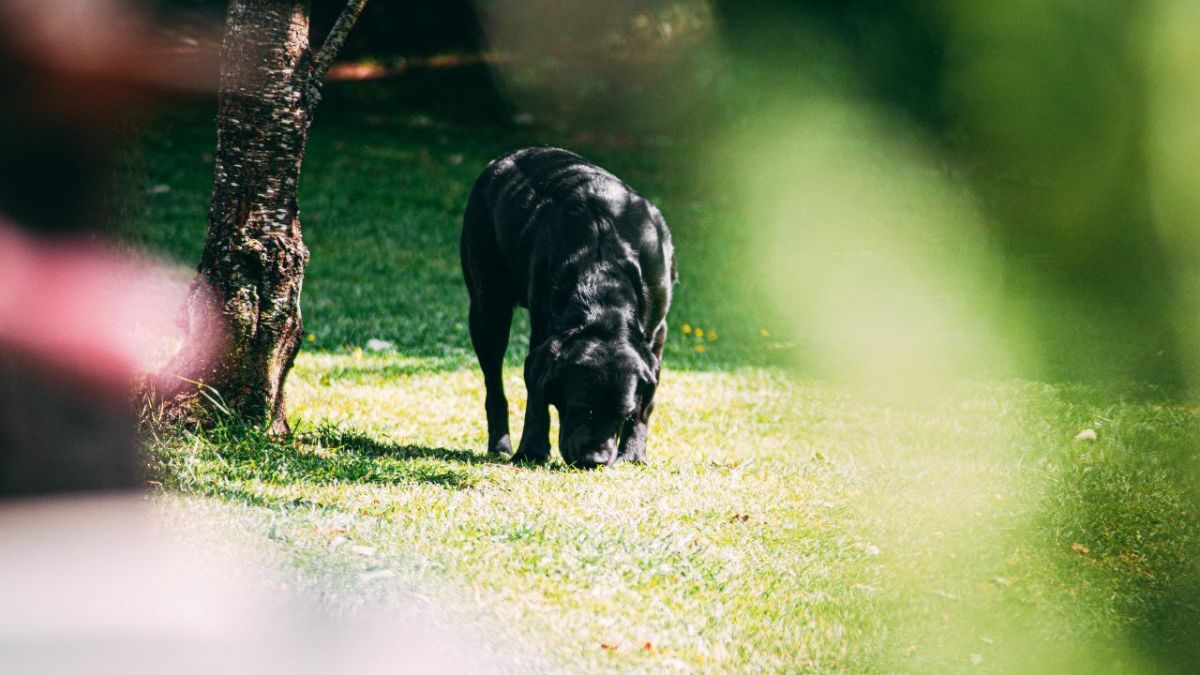How to Stop Your Puppy or Dog From Stealing and Chewing Your Stuff
No, not again!
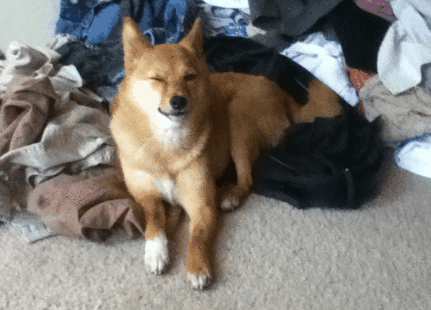
Raise your hand if your puppy or dog has never stolen something and took off running away with it, only to lie down and chew on his prized possession? Many dogs love doing this, especially if you get all upset and start chasing your dog all around the house. Indeed, from your canine's standpoint this is a great game! Trainers call this the "keep away game" dog owners call it " stealing and being naughty" while dogs simply call it "fun"!
Imagine you just came home from work and you are winding down on the couch watching the latest episode of your favorite show. During your deserved quiet time, Rover decides to visit your laundry basket and grabs your treasured bra dragging it and tossing it in the air. What is your reaction? Very likely, you will will suddenly get up and yell "you naughty rascal! come over here and give me back my bra!" Because your dog is reluctant to come to you, you are forced to chase him around the home. The more you chase, them more he runs around with his possession.
What your are doing in reality is eliciting play. Have you ever observed dogs play? Most likely if there are toys around, one dog will grab one and start pouncing around with it, making the other dog eager to have it. The dog purposely moves the toy around making it extra appealing, (perhaps even engages in a few play bows and play barking) until the other dog can't take it any more and gets up and starts chasing to get the toy. The game has started. The same is happening to you. Your dog has invented a great game and by chasing you are just saying "Yes! I want to play!" This is most likely the case, especially if your dog gets all excited, play barks, and starts having the fun of his life.
However, there are also cases where dogs are not playing but are simply being possessive. This is where recognizing body language is important. If you chase and try to take away the prized possession from a possessive dog you risk getting bit. If you own a possessive dog that freezes, becomes tense, growls and tries to snap when you get too close, you have a resource guarder on your hands. You can read more on how to deal with this issue in my hub:
Dogs Protective of Toys and Food: How to Cure Resource Guarding in Dogs
So how to deal with a pampered pooch who steals your shoes, the remote, or anything in reach? There are several strategies to use to reduce this unwanted behavior. The most important of all, however, remains management.
How to Stop Your Dog From Stealing and Chewing
As seen, regardless if your dog is playing, acting possessively, or both, the biggest mistake you can make when dealing with a dog that steals your belongings is to chase. So how to deal with the problem? The following tips will save your belongings and prevent your dog from becoming the victim of a potential dog intestinal blockage.
- Management
Management may sound a lot like common sense, but I tell my clients that this is often the most overlooked issue that may prove invaluable and save lots of heartaches and anguish. So how do you use management for your dog's stealing problem? You make access to such items difficult, it's as easy as that. In other words, your dog gets into the trash and steals left over bones? Invest in a trash can with a lid or install baby gates that limit access to the kitchen. Your dog steals the remote? Put it up and out of reach. Dog eager to chew on your slippers? Keep them in your bedroom behind a closed door. Dog steals from the counter? Keep food out of reach! Set your dog up for success by leaving prohibited items out of the way, while keeping items he can chew on easily in reach.
- Mental Stimulation
What is behind stealing and chewing? Often a bored mind! The saying "Idle hands are the devil's tools" applies to canine companions as well. So if your dog is breaking up your remote control or breaking a part that stuffed animal to get to the squeaker, he is looking for something mentally stimulating to do. There are many dog mind stimulating games for dogs crafted nowadays. Rather than risking your dog swallowing something potentially dangerous, invest in a food puzzle for dogs or some of Nina Ottoson's games for dogs. If your dog is about to steal something try to say "leave it" (see below how to train this) and then offer an appropriate toy.
- Train Drop it
So, say your dog despite all your efforts, found something and has decided to steal it for later chewing, what should you do? As mentioned, chasing your dog is out of question. But what if the item is something your dog cannot have? In this case, you should train your dog the leave it and drop it command. Read how to teach this very important and life saving command below:
How to train dog leave it and drop it command
- Make it a Game
This tip comes from Jean Donaldson, dog behaviorist and author of the book ''The Culture Clash''. Basically, you will put the stealing action on cue. Get a toy your dog may have and that is safe, then right when your dog takes it pretend you are upset and start chasing him while playfully saying " I'm gonna get you!" Then sit down and ignore your dog. Your dog will likely come near you with the toy, soliciting you to play again. Get up again and start the chasing and "I am going to get you" game again. This makes you in charge of the game and makes his toys valuable possibly making other items unappealing since they do not elicit the "I'm gonna get you" reaction from you.
What if my dog steals when I am not around?
If your dog has a history of stealing stuff and being reprimanded for it, very likely he has associated your presence with punishment. This means, the moment you are away, as an opportunist, your dog will steal all the items he cannot normally have. In this case, you have some remedial work to do. Make management your best friend and keep your dog safe, by keeping items out of reach. Crate training or investing in an exercise pen may be ways to keep your pet safe and out of trouble when you are not around. If your dog misbehaves particularly when left at home alone, chewing and scratching on barriers such as windows and doors, consider evaluating him for separation anxiety.
